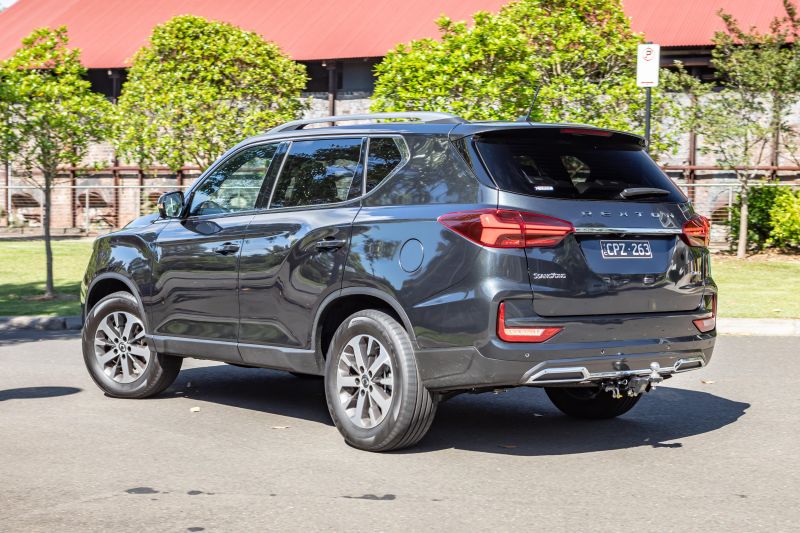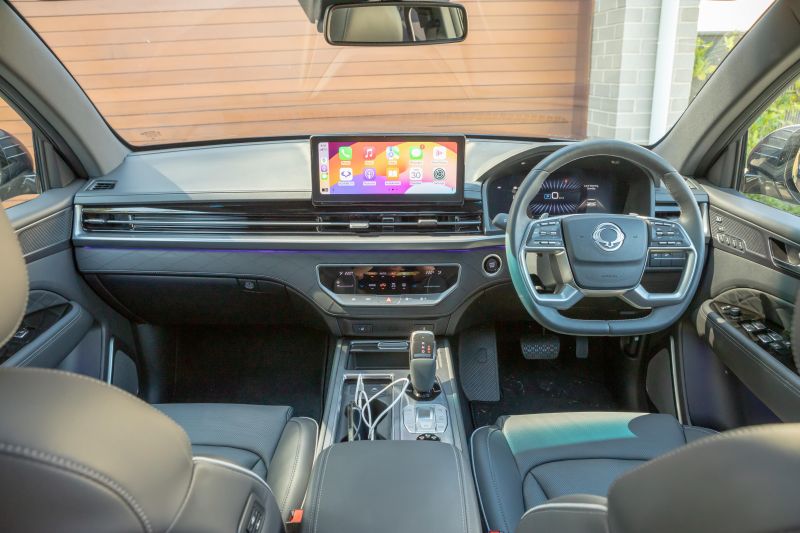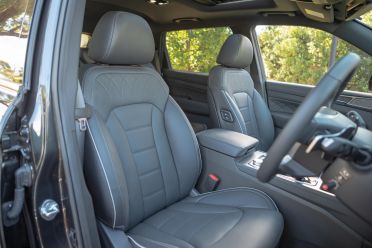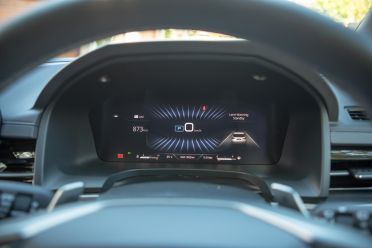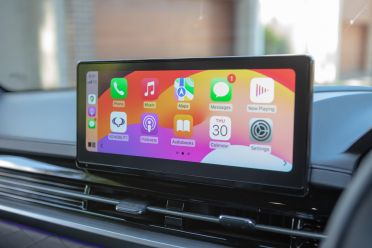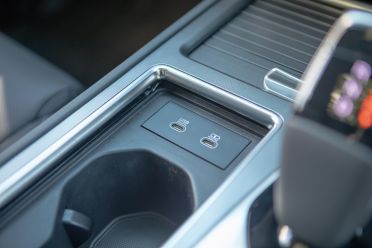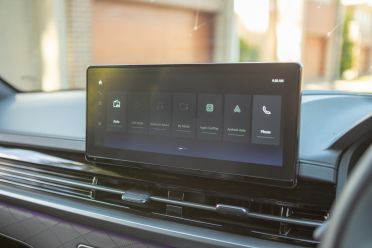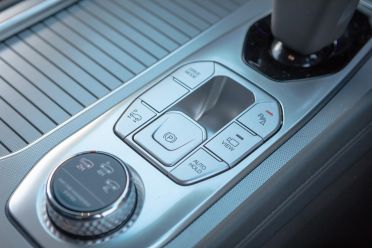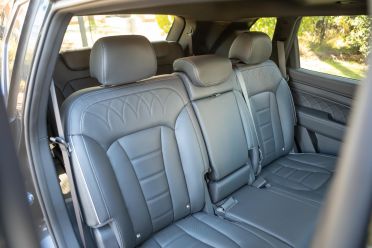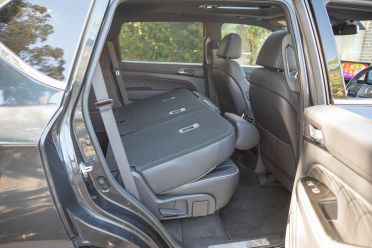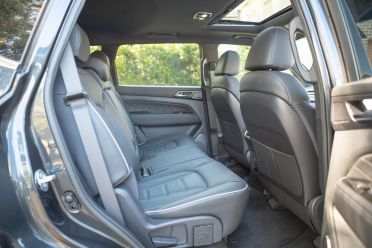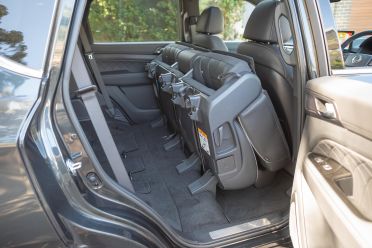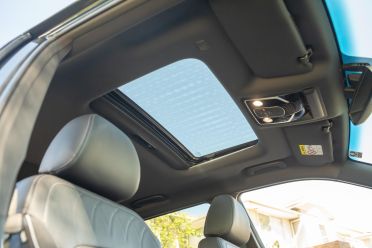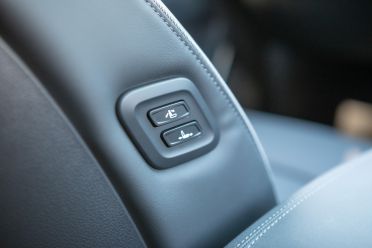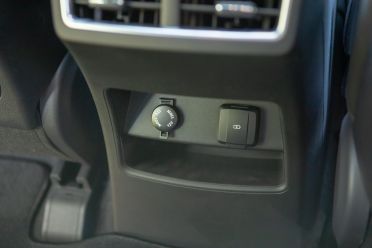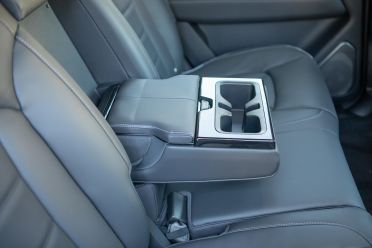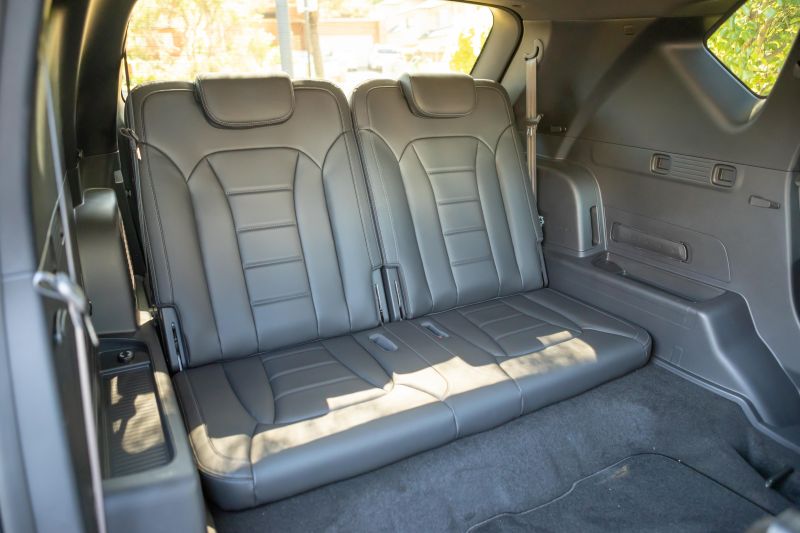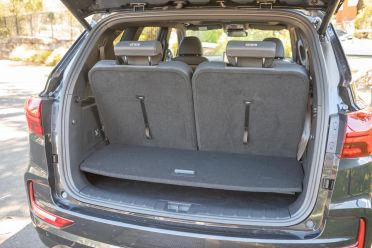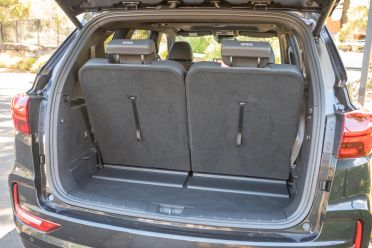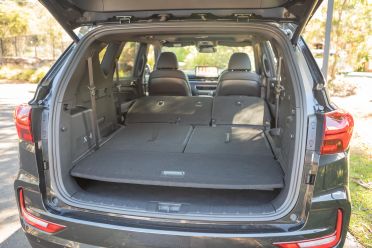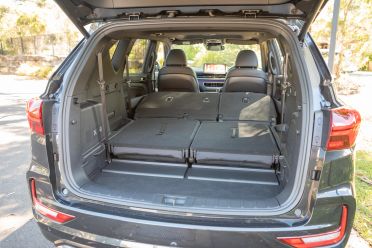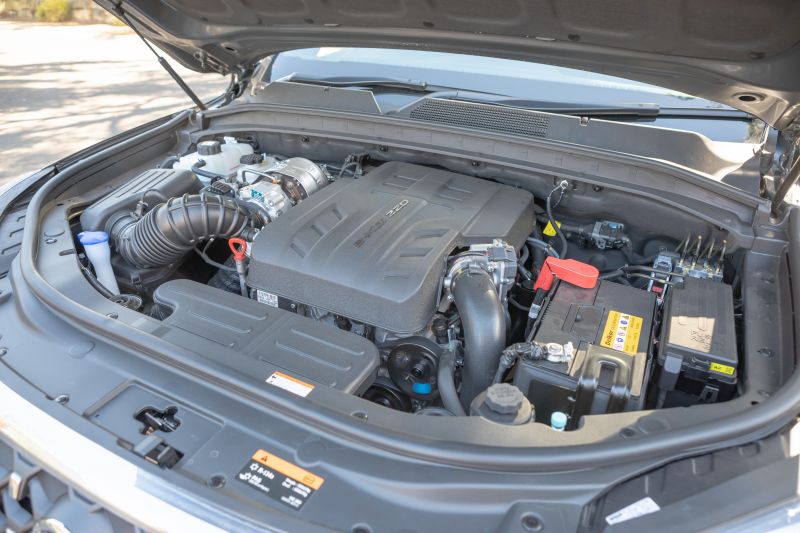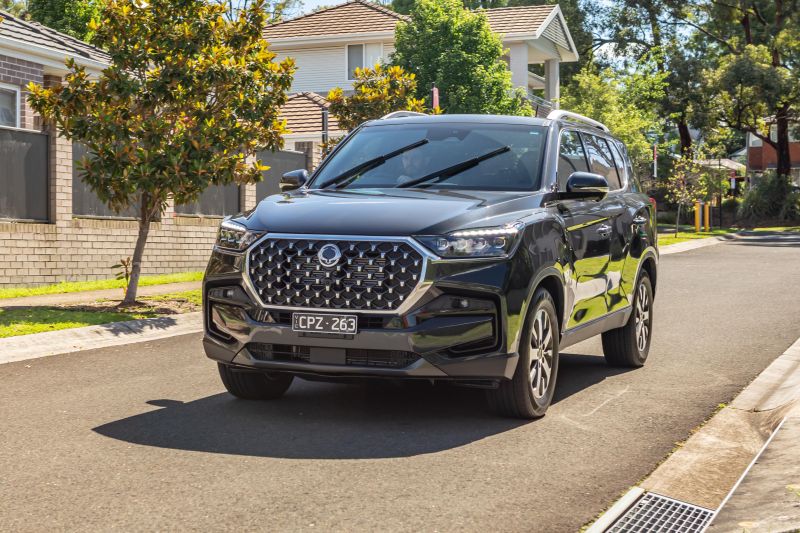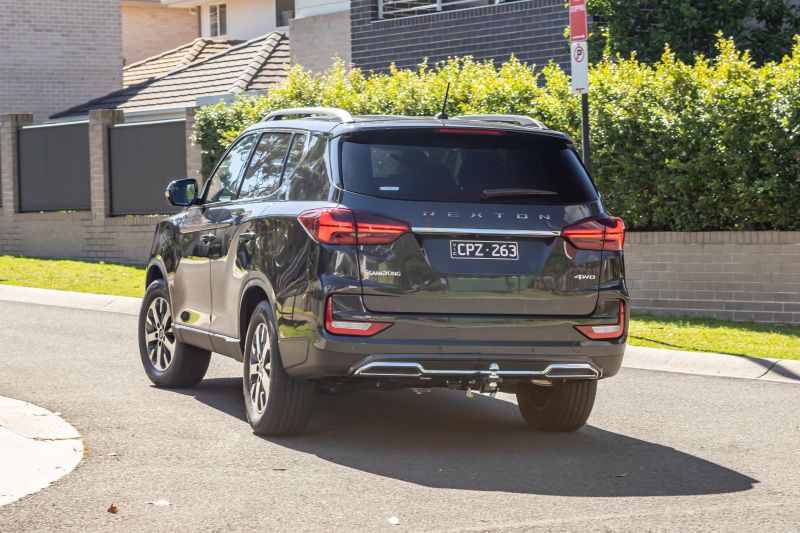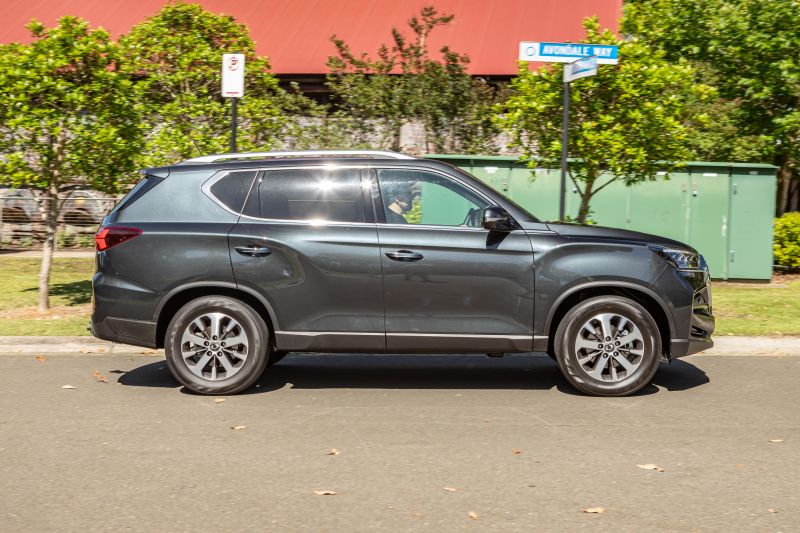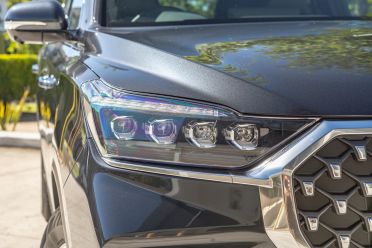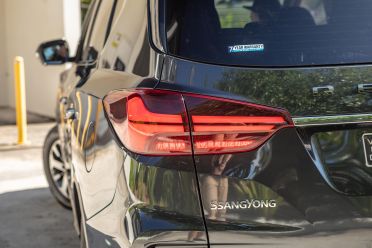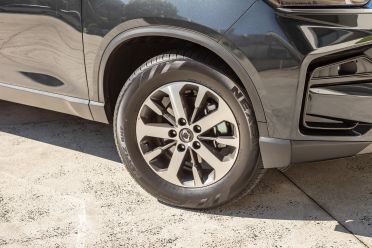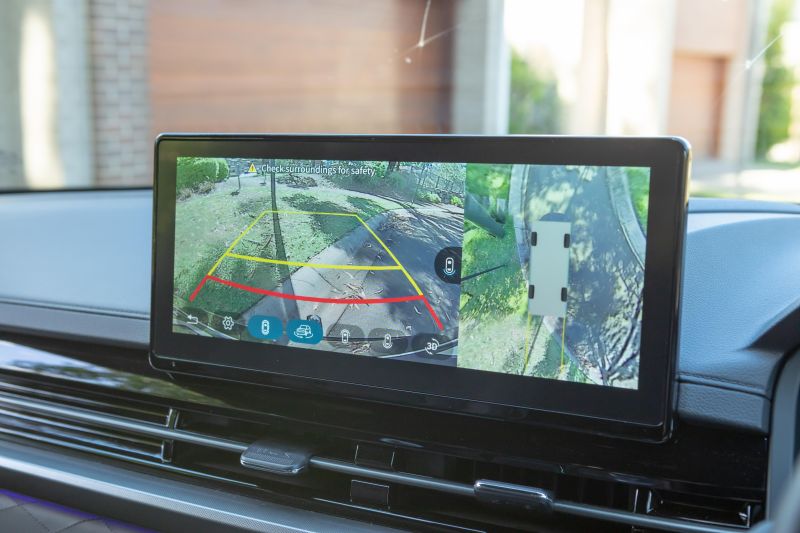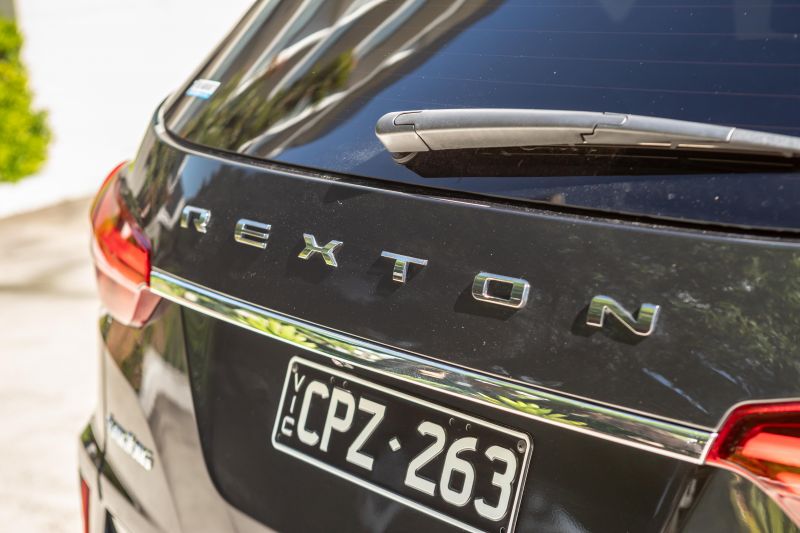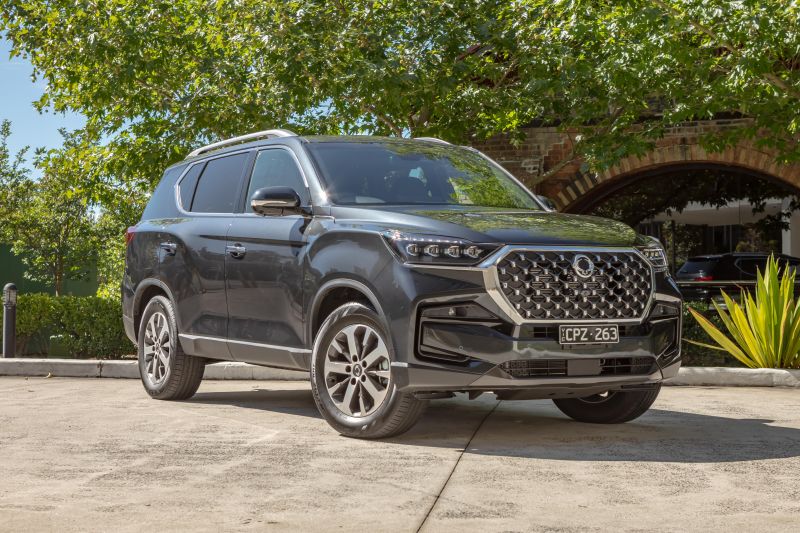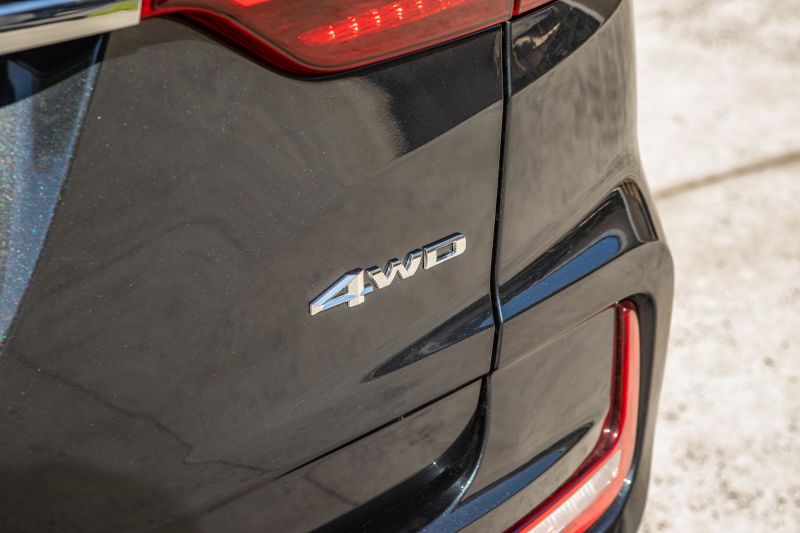The SsangYong Rexton range has been updated for 2024 and beyond, and yes, it’s still called a SsangYong!
The Korean brand – that nation’s number-three seller behind Kia and Hyundai – was successfully bought out and rebranded KG Mobility in its home market, but our cars will continue on as SsangYong.
That’s probably a good thing for the brand, because it has built up a decent reputation in our market for offering value-focused offerings. But with prices up significantly, is it still a good alternative to the big-name rivals?
In this review, you’ll find out.

How much does the Ssangyong Rexton cost?
The Rexton range has been tweaked, with a new mid-spec model added. But the one tested in this review is the one most people will want – the top-spec Ultimate.
2024 SsangYong Rexton pricing:
- 2024 SsangYong Rexton ELX: $50,000 (+$1010)
- 2024 SsangYong Rexton Adventure: $54,000 (NEW)
- 2024 SsangYong Rexton Ultimate: $58,000 (+$1415)
Keep in mind; though, that prices rose over the preceding months, so while this is still an affordable 4×4 seven-seater diesel SUV, the cost is starting to creep up.
It’s also worth noting there is a Sport Pack available for the top-spec Ultimate grade, which adds $2000 to the price, but is only available if you choose Pearl White or Space Black – details about the pack are discussed below.
What about alternatives? There are some good ones for those looking at a 4×2 or 4×4 family SUV with five or seven seats, including the Mitusbishi Pajero Sport ($44,940 to $62,440), and Isuzu MU-X ($48,900 to $67,400).
The best player in that part of the market; though, is the Ford Everest, which starts from $53,490 and ranges through to $77,000 before on-roads. So, you’d be looking at an entry-level Everest for the sort of money you’re getting a full-fat Rexton.
What is the Ssangyong Rexton like on the inside?
The last version of the Rexton still looked pretty smart, but the updated one is a bit classier. In fact, I showed it to a few friends who agreed it was “at Hyundai levels” for interior appearance and showmanship.
Indeed, the top-spec version does have a few flourishes that are absent from the cheaper models, including some fancy looking stitching on the dashboard, doors, and seats, and there’s an ambient light strip across the dash, too.
It does look a posh spot to sit, and if you’re upgrading from the previous model you’ll notice the difference the twin 12.3-inch screens make to this cabin.
The existing layout was neat, but the media screen was prone to being washed out during daytime hours, and it was lacking a few features, too.
The new 12.3-inch touchscreen is a tablet-style setup, and it makes interacting with the system a lot easier; though, the home ‘bar’ of menu tabs for Apple CarPlay is aligned to the left of the screen, which makes for a fair reach to move between podcasts and maps, for example.
Also, there’s a bit of a sequence you need to follow when connecting your phone. Don’t plug it in before you start the car, or the system may not kick in. Start the car, then plug in, and you should be away. It’s not wireless, either.
While I found the Musso I tested recently to be a bit glitchy in terms of the display, this version was fine. It’s just a bit basic.
The digital driver info screen is bright and clear, with multiple different displays for the instrumentation, a number of configurations and a depth of info.
Below the screen as part of the redesigned dashboard, there’s a new climate control panel, which includes temperature and fan controls with touch-sensitive toggles, and you have buttons for fan speed, air-con, rear climate controls and more.
Higher-grade models also have a set of controls down below for seat heating and cooling – very welcome features for this kind of money.
The front passenger seat also has a set of slide and tilt controls accessible to the driver, meaning you can quickly slide the front seat forward if you’re picking someone up – rideshare drivers love it.
Up front there’s a pair of cupholders, a covered centre console bin, bottle holders in the doors and a loose item storage box in front of the gear selector (near the USB-C ports) but there’s no wireless phone charging.
In the second row there’s enough space for adults to sit behind adults. I am 182cm or 6’0”, and I could easily slide behind the driver’s seat when it was set to my position, and in the second-row I had ample foot, leg and headroom, and you can fit three grown-ups across the bench, too.
If you have smaller occupants that accompany you places, there are ISOFIX child-seat anchor points in the window seats, and the bench has three top-tether points as well. And, unlike the Musso, the Rexton has a proper three-point middle seatbelt.
Amenities include a pair of directional air-vents, overhead lighting, a pair of USB-C charge ports, a 12-volt port, map pockets on the seatbacks, bottle holders in the doors, and a flip-down armrest with cupholders.
There are some issues with the second-row usability; though, despite it being well sorted in many ways.
For instance, the seats don’t slide fore and aft, meaning you can’t tailor the space to allow for more room in the third-row.
And beyond that, the folding mechanism is more labour intensive than other similar SUVs. It has a two-action mechanism to fold the seatback down, then fold the unit forward.
There are issues with that because you can’t do it simply if the driver’s seat is set for a taller driver. I had to move the driver’s seat forward to fold down the second-row seat behind.
Further, the seats are bloody heavy. Some people won’t have the muscle to manage the larger portion, which is on the vehicle’s kerbside – which I also think is a bit of an issue, because I’d prefer to have the smaller section more easily foldable for third-row access.
Now, about the third row… It’s just not as accommodating or thoughtful as some others out there. There are no child-seat points in the very back, for example. And the seatbacks don’t offer recline adjustment, meaning the space can be a bit uncomfortable.
And beyond that, while it might be suitable for smaller occupants who want to be back-seat bandits, it’s not the most roomy spot for adults to sit because the middle-row seats don’t slide.
Leg room and foot room for someone my size is acceptable for a short trip, but it’s certainly not spacious. At least head room is okay and shoulder space is good.
There’s a pair of vents in the very back row down near the driver’s side rear wheel-arch, and a fan controller, too. The rear lighting does make it feel a bit more airy, which is good because it otherwise feels a touch boxed in, with small rear windows making for a ‘hemmed in’ feel.
So, it seemingly makes more sense as a five-seater, and if you configure it as such you’ll get a big boot capacity, too.
The cargo volume is stated to be 641 litres with five seats up, and that trims back to a still useful 236 litres with all seats up.
With the very back row in place, I managed to fit a carry-on suitcase and backpack with room to spare. There’s also a removable shelf section in that layout, which you can keep to make for a more even storage area if you need.
Fold all the rear seats down and there’s 1806L on offer. Under the body of the car there’s a full-size spare wheel, too.
What’s under the bonnet?
The Rexton comes with one powertrain.
Under the bonnet is a 2.2-litre four-cylinder turbo-diesel good for 148kW of power, and 441Nm of torque. Standard is an eight-speed automatic gearbox, and selectable four-wheel drive (2H, 4H and low-range 4L).
All grades come with unbraked towing capacity of 750kg and a braked maximum towing capacity of 3500kg, which is the benchmark level for off-road-capable SUVs like this.
The kerb weight for Rexton tops out at 2130kg, with a gross vehicle mass (GVM) of 2960kg. And the gross combination mass, or GCM, is 6460kg, meaning you can put a 3.5-tonne towed load behind the vehicle when it’s at its maximum GVM, if you really, really need to.
How does the Ssangyong Rexton drive?
There are some elements of the Rexton drive experience that are good, and others that could do with a bit of fine tuning.
For example, the turbo-diesel engine offers a good amount of shove when you need it, unless you need it from a standstill, because there’s some noticeable lag from a stop.
The eight-speed automatic transmission is mostly quite good with smooth enough shifts and decent shift logic for high speed gradient changes, plus it’s not too fussy around town either, allowing the engine to do its job.
The steering is mostly fine at lower speeds – and despite the fact the steering wheel is quite large, the Rexton doesn’t feel huge to move around in parking spots.
But the high-speed steering response is frustrating, as the Adventure and Ultimate models have ‘speed sensitive steering’ that makes the weighting feel really heavy, even gluggy, at higher speeds.
For instance, on my commute I drive up a hill where the speed is 90km/h, and while the steering heft is okay in straight-road scenarios, as soon as you turn the wheel there’s an odd stiffness, or resistance, to the reaction of the steering.
The ride is also better in slower speed situations than it is at pace, with the suspension seemingly tuned for a softer ride and; therefore, it’s a bit of a bouncy experience at pace.
It is relatively quiet though, with little in the way of open-road noise intrusion into the cabin, and the diesel is hushed at highway pace, too.
And for the nervous parkers out there, the Ultimate’s surround-view camera really does offer a level of reassurance that you can’t get in versions with a standard back-up camera.
What do you get?
Rexton ELX comes highlights
- 7 seats
- 18-inch alloy wheels
- Automatic LED headlights
- Automatic high-beam
- 12.3-inch digital instrument cluster
- 12.3-inch touchscreen infotainment system
- Wired Apple CarPlay, Android Auto
- 6-speaker sound system
- Leather-wrapped steering wheel
- Paddle shifters
- Steering height and reach adjustment
- Dual-zone climate control
- Electric park brake with auto hold
- Keyless entry and start
- Rain-sensing wipers
- Front auto up/down power windows
Rexton Adventure adds:
- Power tailgate
- Leatherette upholstery
- Power-adjustable front seats
- Heated and ventilated front seats
- Heated outboard second-row seats
- Heated steering wheel
- Speed-sensitive power steering
- Tyre pressure monitoring
- Keyless entry with walk-away auto locking
Rexton Ultimate adds:
- Power single-pane sunroof
- Quilted leather upholstery
- Surround-view camera
- Third-row climate controls
- Ambient lighting
- Illuminated scuff plates
- Privacy glass
- Rear auto up/down power windows
The optional $2000 Sport Pack available in Ultimate spec (in Pearl White or Space Black only) adds:
- 20-inch alloy wheels with shadow chrome finish
- Black roof rails
- LED front fog lights with shadow chrome surrounds
- Shadow chrome front grille, tailgate, and rear bumper garnish
Is the Ssangyong Rexton safe?
There is no current safety rating applicable to the Rexton SUV.
That could rule it out for you. Or, the fact that the airbag coverage doesn’t extend to cover third-row occupants could rule it out, too. I mean, it’s a three-row SUV and those in the very back aren’t covered by airbags in the event of a crash.
Or you might just be turned off by the fact there’s no adaptive cruise control – still! The brand missed an opportunity to upgrade the vehicle in line with current trends, here. It’s so weird because that tech is offered in the Rexton’s home market.
Standard safety features include:
- Autonomous emergency braking (AEB)
- Forward collision warning
- Blind-spot monitoring
- Rear cross-traffic alert
- Leading vehicle departure alert
- Reversing camera
- Front and rear parking sensors
- Front, front-side and curtain airbags
- Driver’s knee airbag
If you choose the Ultimate you also get a surround-view camera.
How much does the Ssangyong Rexton cost to run?
The Rexton argues a strong case from an ownership perspective.
There’s a seven-year, unlimited kilometre warranty for private and business customers (meaning if you wanted to drive for a ride-share company in one of these, you could in theory). There’s also a seven-year roadside assistance plan on offer, too.
Servicing intervals are every 12 months/15,000km, with a seven-year capped-price program that spans out to 105,000km. Pricing for these first seven services is capped at $375 per visit.
In terms of fuel consumption, the official number for the Rexton range is 8.7 litres per 100 kilometres, and over a few hundred kilometres of driving, I saw an on-screen return of 9.1L/100km, which I was pretty impressed with.
Load it up with all seven seats full, or tow to the maximum limit and; of course, you won’t see the sort of figures I did. In case you’re wondering, the Rexton has a 70-litre fuel tank.
CarExpert’s Take on the SsangYong Rexton
I can see why the SsangYong Rexton would make sense for plenty of seven-seater customers.
With a relatively efficient diesel engine, four-wheel drive for the adventure-curious, and a long warranty with loads of equipment, it seems to stack up pretty well.
There are some obvious considerations when it comes to safety gear and tech, and rivals like the Isuzu MU-X might appeal more for that reason.
But from a value perspective, the Rexton has a strong case.
Click the images for the full gallery
BUY: SsangYong Rexton
MORE: Everything SsangYong Rexton








